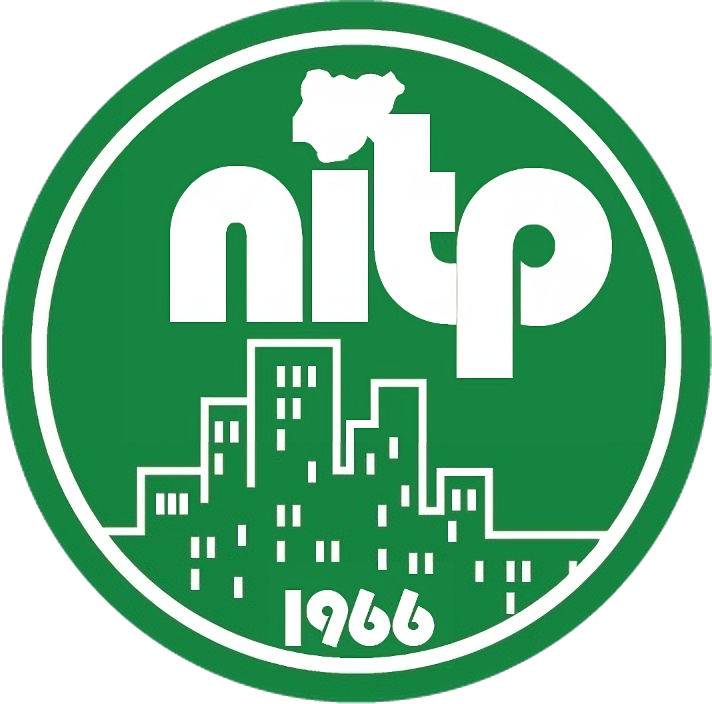Experts Call for Enforcing National Environmental Plan and Development Policy
The Nigerian Institute of Town Planners (NITP) has renewed its call for the urgent review and implementation of the Nigerian Urban and Regional Planning Law of 1992. National President, Tpl. Nathaniel Atebije, emphasized the significance of enforcing the law to ensure sustainable urban development and effective physical planning across the country.
Addressing the conference’s opening ceremony during the 55th International Conference of the institute in Enugu, Atebije expressed concern over the slow domestication of the law. “It is disheartening that 30 years after the enactment of this crucial planning law, only a few states have domesticated it.
The Federal Government and most states have yet to take decisive steps to enforce it,” he said. He highlighted the law’s potential to promote organized urban growth, economic development, and sustainable communities.
Tpl. Kabir Yari, the Lead Paper presenter and Managing Director of Pragmatic Solutions Limited, presented a comprehensive overview of the obstacles facing urban planning in Nigeria. As a seasoned urban planning consultant, Yari outlined critical issues that hinder proper enforcement and effective planning in the country.

Yari noted, “The challenge we are having is not only in the class but in the provisions for policies. First, there is supposed to be a National Environmental Plan and Development Policy that the law mandates, along with education and training provisions. Promotion of cooperation and coordination amongst states and local governments in the preparation and implementation of urban and regional plans is essential.”
He stressed that without a National Fiscal Planning Commission, which was intended to include various key sectors like land, finance, transport, communications, housing, and representatives of the states and Federal Capital Territory (FCT), the issue of coordination remains a persistent challenge. This, he explained, has led to misalignment in national plans, hindering progress.
Yari discussed the evolution of Nigeria’s development planning, highlighting the transition from National Development Plans in the 1950s to the current National Development Plan 2021-2025. He emphasized that the National Development Plan 2021-2025 aims to unlock the country’s potential through economic diversification, infrastructure investment, and poverty reduction. However, he noted that achieving these goals would require adherence to planned urbanization and the implementation of supportive policies and frameworks.
Reflecting on global perspectives, Yari referenced the World Bank’s observation on Nigeria’s urbanization efforts: “The World Bank says Nigeria’s economic potential is huge if it can get urbanization right, but tremendous costs await if it continues with business as usual.” He echoed the Bank’s warning that unplanned urbanization could jeopardize Nigeria’s socio-economic growth.
In his presentation, Yari also delved into the significance of establishing a National Fiscal Development Plan to synchronize different sectors and foster balanced regional development. He shared insights from neighboring African countries, such as Ghana and Kenya, where fiscal planning has been effectively integrated into their national budget processes and development strategies. Yari pointed out that in Kenya, it is constitutionally mandated for each county to prepare an Integrated Development Plan, ensuring a coordinated and sustainable approach to urban and regional planning.
Further emphasizing the importance of regional planning, he brought attention to successful projects like the Lekki Corridor in Nigeria, a key integration of road, rail, and telecommunication infrastructures supported by USAID. He reiterated that comprehensive regional planning is indispensable for national growth, balanced development, and industrialization.
President Atebije reiterated NITP’s commitment to engaging the government in developing and implementing comprehensive national, regional, and local master plans to tackle environmental issues like flooding. “Prosperity thrives in an orderly, functional, and aesthetically pleasant environment,” he stated, calling on the government to prioritize physical planning as an essential pillar for national development.
The opening ceremony also included the presentation of awards by the Deputy Governor of Enugu State, Barr. Ifeanyi Ossai, on behalf of the Institute to Tpl. Lami Ayuba, Chairman of the FCT chapter. Ayuba was honored with two awards: Best Contribution to National Secretariat and Best Chapter Chairman.
The conference concluded with a renewed call to action for urban planners, institutions, and policymakers to work collaboratively to ensure the effective enforcement of the Urban and Regional Planning Law. This, they believe, is crucial to creating a sustainable and prosperous future for Nigeria.



